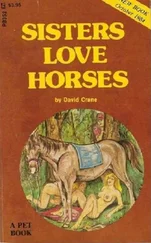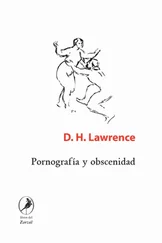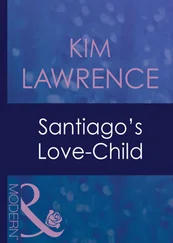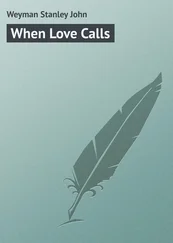David Lawrence - Women in Love
Здесь есть возможность читать онлайн «David Lawrence - Women in Love» весь текст электронной книги совершенно бесплатно (целиком полную версию без сокращений). В некоторых случаях можно слушать аудио, скачать через торрент в формате fb2 и присутствует краткое содержание. Год выпуска: 2003, Жанр: Классическая проза, Современные любовные романы, на английском языке. Описание произведения, (предисловие) а так же отзывы посетителей доступны на портале библиотеки ЛибКат.
- Название:Women in Love
- Автор:
- Жанр:
- Год:2003
- ISBN:нет данных
- Рейтинг книги:3 / 5. Голосов: 1
-
Избранное:Добавить в избранное
- Отзывы:
-
Ваша оценка:
- 60
- 1
- 2
- 3
- 4
- 5
Women in Love: краткое содержание, описание и аннотация
Предлагаем к чтению аннотацию, описание, краткое содержание или предисловие (зависит от того, что написал сам автор книги «Women in Love»). Если вы не нашли необходимую информацию о книге — напишите в комментариях, мы постараемся отыскать её.
Women in Love — читать онлайн бесплатно полную книгу (весь текст) целиком
Ниже представлен текст книги, разбитый по страницам. Система сохранения места последней прочитанной страницы, позволяет с удобством читать онлайн бесплатно книгу «Women in Love», без необходимости каждый раз заново искать на чём Вы остановились. Поставьте закладку, и сможете в любой момент перейти на страницу, на которой закончили чтение.
Интервал:
Закладка:
'In the end,' she said to herself, 'I shall go away from him.'
'I can be free of her,' he said to himself in his paroxysms of suffering.
And he set himself to be free. He even prepared to go away, to leave her in the lurch. But for the first time there was a flaw in his will.
'Where shall I go?' he asked himself.
'Can't you be self-sufficient?' he replied to himself, putting himself upon his pride.
'Self-sufficient!' he repeated.
It seemed to him that Gudrun was sufficient unto herself, closed round and completed, like a thing in a case. In the calm, static reason of his soul, he recognised this, and admitted it was her right, to be closed round upon herself, self-complete, without desire. He realised it, he admitted it, it only needed one last effort on his own part, to win for himself the same completeness. He knew that it only needed one convulsion of his will for him to be able to turn upon himself also, to close upon himself as a stone fixes upon itself, and is impervious, self-completed, a thing isolated.
This knowledge threw him into a terrible chaos. Because, however much he might mentally WILL to be immune and self-complete, the desire for this state was lacking, and he could not create it. He could see that, to exist at all, he must be perfectly free of Gudrun, leave her if she wanted to be left, demand nothing of her, have no claim upon her.
But then, to have no claim upon her, he must stand by himself, in sheer nothingness. And his brain turned to nought at the idea. It was a state of nothingness. On the other hand, he might give in, and fawn to her. Or, finally, he might kill her. Or he might become just indifferent, purposeless, dissipated, momentaneous. But his nature was too serious, not gay enough or subtle enough for mocking licentiousness.
A strange rent had been torn in him; like a victim that is torn open and given to the heavens, so he had been torn apart and given to Gudrun. How should he close again? This wound, this strange, infinitely-sensitive opening of his soul, where he was exposed, like an open flower, to all the universe, and in which he was given to his complement, the other, the unknown, this wound, this disclosure, this unfolding of his own covering, leaving him incomplete, limited, unfinished, like an open flower under the sky, this was his cruellest joy. Why then should he forego it? Why should he close up and become impervious, immune, like a partial thing in a sheath, when he had broken forth, like a seed that has germinated, to issue forth in being, embracing the unrealised heavens.
He would keep the unfinished bliss of his own yearning even through the torture she inflicted upon him. A strange obstinacy possessed him. He would not go away from her whatever she said or did. A strange, deathly yearning carried him along with her. She was the determinating influence of his very being, though she treated him with contempt, repeated rebuffs, and denials, still he would never be gone, since in being near her, even, he felt the quickening, the going forth in him, the release, the knowledge of his own limitation and the magic of the promise, as well as the mystery of his own destruction and annihilation.
She tortured the open heart of him even as he turned to her. And she was tortured herself. It may have been her will was stronger. She felt, with horror, as if he tore at the bud of her heart, tore it open, like an irreverent persistent being. Like a boy who pulls off a fly's wings, or tears open a bud to see what is in the flower, he tore at her privacy, at her very life, he would destroy her as an immature bud, torn open, is destroyed.
She might open towards him, a long while hence, in her dreams, when she was a pure spirit. But now she was not to be violated and ruined. She closed against him fiercely.
They climbed together, at evening, up the high slope, to see the sunset. In the finely breathing, keen wind they stood and watched the yellow sun sink in crimson and disappear. Then in the east the peaks and ridges glowed with living rose, incandescent like immortal flowers against a brown-purple sky, a miracle, whilst down below the world was a bluish shadow, and above, like an annunciation, hovered a rosy transport in mid-air.
To her it was so beautiful, it was a delirium, she wanted to gather the glowing, eternal peaks to her breast, and die. He saw them, saw they were beautiful. But there arose no clamour in his breast, only a bitterness that was visionary in itself. He wished the peaks were grey and unbeautiful, so that she should not get her support from them. Why did she betray the two of them so terribly, in embracing the glow of the evening? Why did she leave him standing there, with the ice-wind blowing through his heart, like death, to gratify herself among the rosy snow-tips?
'What does the twilight matter?' he said. 'Why do you grovel before it? Is it so important to you?'
She winced in violation and in fury.
'Go away,' she cried, 'and leave me to it. It is beautiful, beautiful,' she sang in strange, rhapsodic tones. 'It is the most beautiful thing I have ever seen in my life. Don't try to come between it and me. Take yourself away, you are out of place—'
He stood back a little, and left her standing there, statue-like, transported into the mystic glowing east. Already the rose was fading, large white stars were flashing out. He waited. He would forego everything but the yearning.
'That was the most perfect thing I have ever seen,' she said in cold, brutal tones, when at last she turned round to him. 'It amazes me that you should want to destroy it. If you can't see it yourself, why try to debar me?' But in reality, he had destroyed it for her, she was straining after a dead effect.
'One day,' he said, softly, looking up at her, 'I shall destroy YOU, as you stand looking at the sunset; because you are such a liar.'
There was a soft, voluptuous promise to himself in the words. She was chilled but arrogant.
'Ha!' she said. 'I am not afraid of your threats!' She denied herself to him, she kept her room rigidly private to herself. But he waited on, in a curious patience, belonging to his yearning for her.
'In the end,' he said to himself with real voluptuous promise, 'when it reaches that point, I shall do away with her.' And he trembled delicately in every limb, in anticipation, as he trembled in his most violent accesses of passionate approach to her, trembling with too much desire.
She had a curious sort of allegiance with Loerke, all the while, now, something insidious and traitorous. Gerald knew of it. But in the unnatural state of patience, and the unwillingness to harden himself against her, in which he found himself, he took no notice, although her soft kindliness to the other man, whom he hated as a noxious insect, made him shiver again with an access of the strange shuddering that came over him repeatedly.
He left her alone only when he went skiing, a sport he loved, and which she did not practise. The he seemed to sweep out of life, to be a projectile into the beyond. And often, when he went away, she talked to the little German sculptor. They had an invariable topic, in their art.
They were almost of the same ideas. He hated Mestrovic, was not satisfied with the Futurists, he liked the West African wooden figures, the Aztec art, Mexican and Central American. He saw the grotesque, and a curious sort of mechanical motion intoxicated him, a confusion in nature. They had a curious game with each other, Gudrun and Loerke, of infinite suggestivity, strange and leering, as if they had some esoteric understanding of life, that they alone were initiated into the fearful central secrets, that the world dared not know. Their whole correspondence was in a strange, barely comprehensible suggestivity, they kindled themselves at the subtle lust of the Egyptians or the Mexicans. The whole game was one of subtle inter-suggestivity, and they wanted to keep it on the plane of suggestion. From their verbal and physical nuances they got the highest satisfaction in the nerves, from a queer interchange of half-suggested ideas, looks, expressions and gestures, which were quite intolerable, though incomprehensible, to Gerald. He had no terms in which to think of their commerce, his terms were much too gross.
Читать дальшеИнтервал:
Закладка:
Похожие книги на «Women in Love»
Представляем Вашему вниманию похожие книги на «Women in Love» списком для выбора. Мы отобрали схожую по названию и смыслу литературу в надежде предоставить читателям больше вариантов отыскать новые, интересные, ещё непрочитанные произведения.
Обсуждение, отзывы о книге «Women in Love» и просто собственные мнения читателей. Оставьте ваши комментарии, напишите, что Вы думаете о произведении, его смысле или главных героях. Укажите что конкретно понравилось, а что нет, и почему Вы так считаете.











